BLOG
Building Bold: Founders on Scaling, AI, and the Greek Talent Advantage
By Endeavor Greece
May 19, 2025
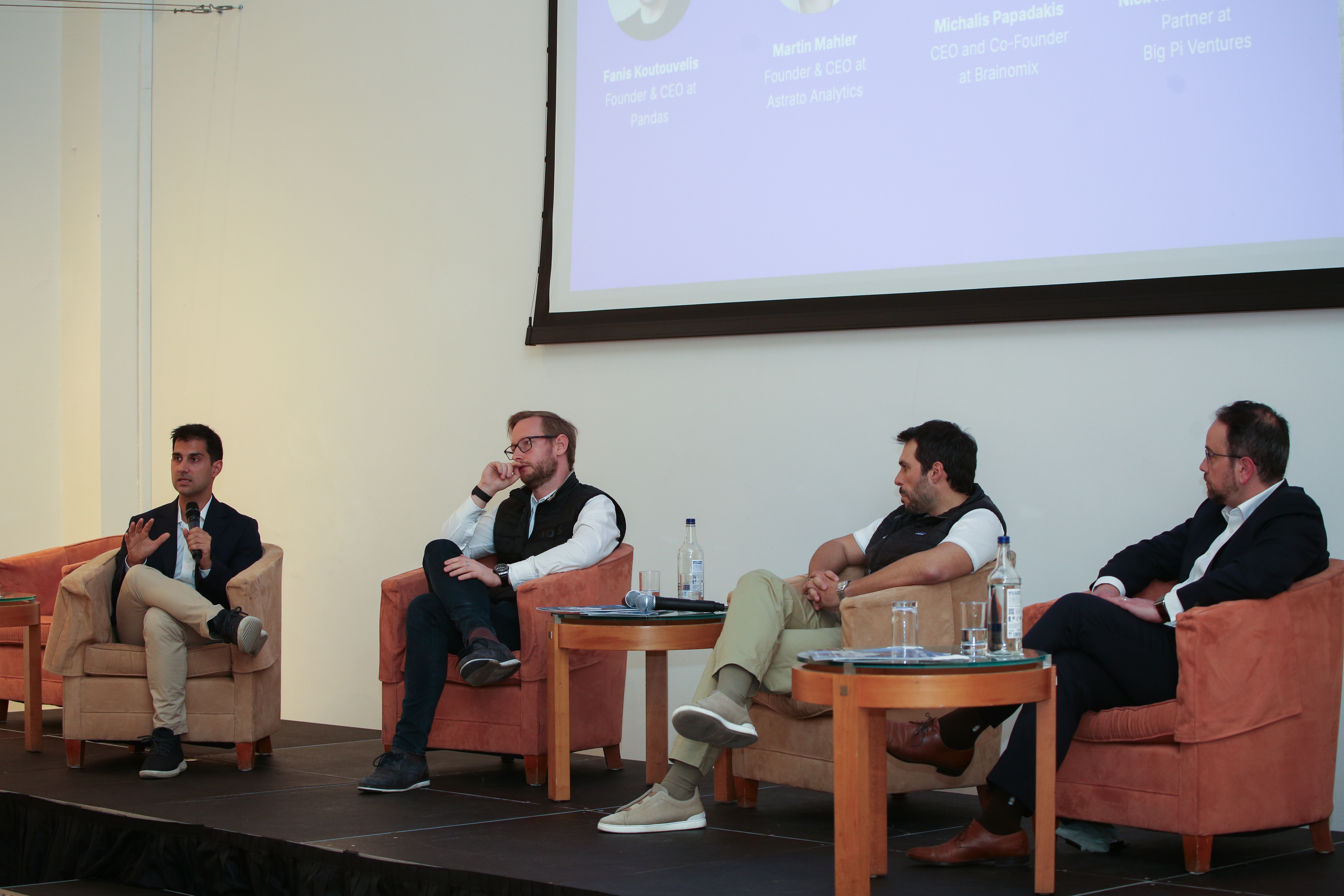
Our 4th Greeking Out in London closed the night on a high note. Moderated by Nick Kalliagkopoulos (Big Pi Ventures), the session brought together three founders scaling ambitious companies from London with deep ties to Greece:
Fanis Koutouvelis, founder & CEO of Pandas
Martin Mahler, founder & CEO of Astrato Analytics
Michalis Papadakis, founder & CEO of Brainomix
Their fields may differ: recommerce, analytics, AI-powered diagnostics, but the conversation revealed shared themes around global ambition, product obsession, and the growing power of Greece as a talent base.
From Scratch to Scale
All three founders are repeat entrepreneurs. Fanis launched his first startup in Greece in 2009 - long before the word “ecosystem” had much meaning locally. He recalled how, at the time, there wasn’t even legal precedent for stock option plans. Founders not only had to build companies, but also educate law firms along the way.
Today, Fanis is building Pandas, a B2B SaaS company in the circular tech economy. What started as a kiosk-based hardware solution for trade-in phones evolved into a powerful AI product that enables telecoms and retailers to instantly assess the condition and value of used devices—no cables, apps, or setup required. After years of collecting labeled image data through its hardware deployments, Pandas now offers a fully vision-based grading solution that’s as scalable as it is sleek.
Martin’s journey took a different route. Born in Germany, raised in Greece, and now based in London, he bootstrapped his first business in the enterprise BI space to over $20M ARR and 150 employees. After exiting, he spun out IP to launch Astrato Analytics, a cloud-native BI company challenging incumbents in a crowded market. As Martin put it, “In competitive markets, you have to be loud and unapologetic, there’s no other way.” His goal? To redefine the analytics experience from the ground up, and replace legacy solutions with something smarter, faster, and genuinely user-focused.
Michalis, a neuroscientist by training, co-founded Brainomix to tackle one of healthcare’s most devastating inefficiencies: stroke care. Despite having effective treatments, up to 80% of stroke patients still miss the intervention window. Brainomix uses AI to analyze brain scans and support front-line clinicians in diagnosing and triaging stroke cases. After a decade of building, the company is now used in over 300 hospitals globally, with more than two million patient scans processed and a proven ability to triple the number of full recoveries. The company is now expanding into the U.S. and applying its tech to new therapeutic areas like lung disease.
AI as a Tool - And a Turning Point
Naturally, AI was a central theme. Each founder had a different relationship to it.
Michalis emphasized that, while the idea of AI in medicine isn’t new, the last few years have brought real impact. AI in radiology, he noted, is now one of the most advanced domains where clinical and commercial value is being proven at scale. But it has taken time for good reason. Medical AI is regulated as a device; it must be safe, effective, and reproducible.
He also addressed the fear that AI might replace doctors. That’s not the current reality, he said, but it may be a future one, particularly as foundation models begin integrating imaging, blood data, genomics, and more. “Right now, it’s augmentation. In the future, prediction will be the game-changer.”
For Martin, generative AI is already changing how software companies scale. Hiring, onboarding, marketing - many of the traditional bottlenecks of company-building are now being reimagined. While GenAI isn’t yet mature enough to write production code in highly specialized environments like Astrato’s, it’s already proving transformative in customer support, internal tools, and go-to-market personalization. “We’re going to hire slower than ever,” he said. “Because we can do more with fewer people, faster.”
Fanis’ team has embedded AI directly into the product, using machine learning and vision models to analyze physical devices and deliver instant pricing. The foundation was built through years of data labeling collected via in-store hardware units. Now, that edge has allowed Pandas to scale globally with a software-first product that telecom operators and retailers can use anywhere.
Greece: From Talent Pool to Strategic Asset
Despite building from London and Oxford, all three founders have roots and operations in Greece. And all three agreed: the Greek talent pool is no longer just “good for the price.” It’s a strategic advantage.
Fanis called it “the best hack in the world.” In Athens, Pandas has built a 30+ person product and engineering team that would be nearly impossible to assemble at the same cost elsewhere. The team is strong, motivated, and able to execute at global standards.
Michalis echoed the point. Brainomix is working to scale its presence in Greece, where a handful of hospitals already use their platform. The goal is to move toward a national rollout, mirroring what they’ve achieved in countries like Wales and Hungary.
There are, however, gaps. Fanis noted that while Greece excels in engineering, finding strong business development or enterprise sales talent locally remains a challenge. For those roles, he continues to build an international leadership team, but keeps his builders firmly rooted in Greece.
Founders as Multiplier Effects
As the panel wrapped, one theme became clear: these founders aren’t just building companies - they’re feeding back into the ecosystem.
Whether it’s returning to Greece to hire teams, investing in early-stage ventures, or sharing lessons with the next generation, their journeys reflect a new chapter in Greek tech; one where diaspora talent isn’t just nostalgic, but actively shaping the country’s innovation landscape.
From medical breakthroughs to AI-powered trade-ins to next-gen analytics, the message from London was clear: Greek founders aren’t thinking small - and they’re just getting started.
People Involved :
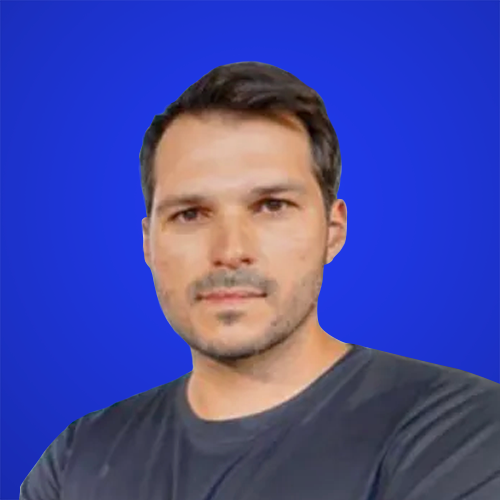
Fanis Koutouvelis
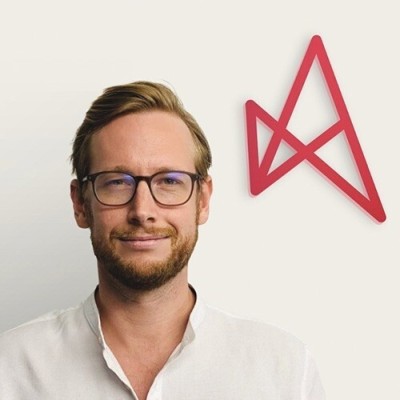
Martin Mahler
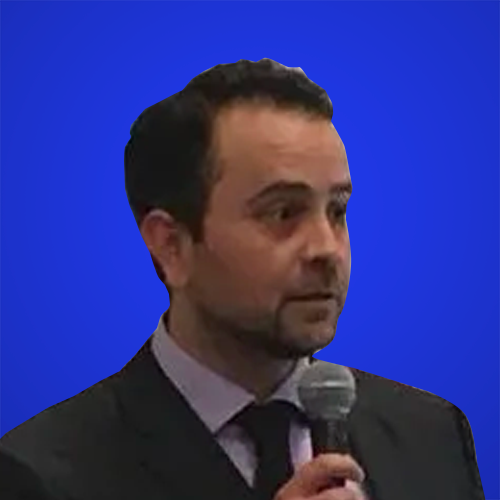
Dr. Michalis Papadakis
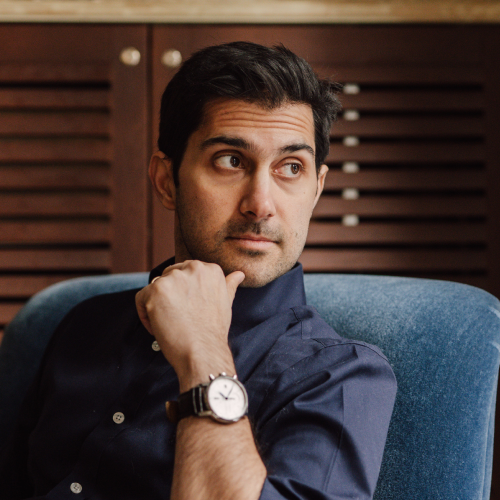
Nick Kalliagkopoulos
Companies Mentioned :

Pandas
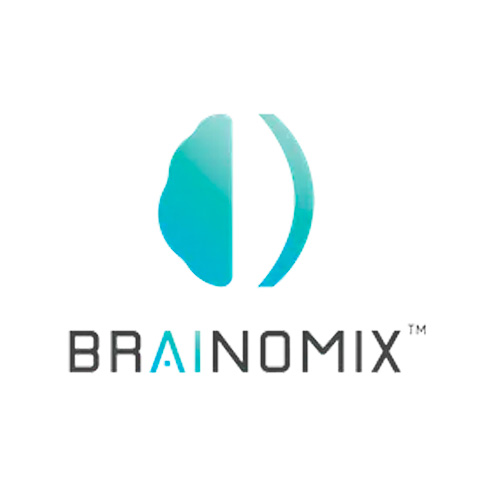
Brainomix